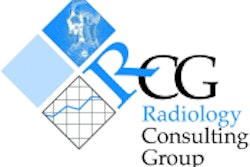Doctors undergo years of methodical training and study. They can display their medical degrees and proffer documentation of their diligence as proof of their abilities. But can medical consultants -- who can have a significant impact on a doctor’s professional and financial future -- say the same?
In a June report to the U.S. Senate Finance Committee, officials with the General Accounting Office (GAO) wrote that healthcare consultants were advising clients to utilize billing practices that were questionable, and, in some cases, illegal.
Though investigators attended only two workshops and a seminar they had found on the Internet, speakers at both workshops advised the assembled medical professionals against reporting overpayments, suggested giving preferential treatment to patients with higher-paying insurance plans, and offered ways to bill for more expensive tests than were medically necessary.
While most consultants are presumed to be legitimate, and have at least some background in healthcare, no training or certification is required to open up shop. To be sure, there are advanced degrees such as an MBA -- and compliance tests that can bolster a consultant’s résumé -- but none are required. Some $11.9 billion in improper Medicare fee-for-service payments were made last year. And while no one knows if bad consulting advice contributed to the problem, it certainly didn't help matters.
In one instance, a consultant told doctors how to discourage Medicare and Medicaid patients from coming in by scheduling their appointments at the least convenient times.
"We don’t want [Medicare and Medicaid patients] taking the best appointment slots," the consultant was quoted as saying. "So they get scheduled only 10 to 11:30 in the morning and 2 to 3:30 in the afternoon. That’s it. We want the best appointment slots to go to the best payers."
In another, the attendees were told to "keep their mouths shut" and "get on with life" when they discovered overpayments, rather than reporting or refunding them.
Though the consultants’ suggestions may seem absurd, the workshops themselves probably had the appearance of propriety. Attendance at one workshop promised continuing education credits from the American Association of Medical Assistants (AAMA). The other listed the Medical Society of the District of Columbia (MSDC) as a sponsor.
Not long after the GAO report came out, the AAMA released a statement saying the consulting company that claimed an affiliation with it was not approved by the AAMA, and therefore its workshops did not qualify students for credits.
The Medical Society of the District of Columbia also sought to distance itself from the controversy. While acknowledging a partnership with the alleged offending company, Conomikes Associates, the Costa Mesa, CA, firm whose workshop was attended by government investigators, the MSDC cancelled its workshops for the rest of the year while officials looked into Conomikes’ actions.
"We need to take a wait-and-see approach," said MSDC spokesman David Love. "There’s really no easy way around it."
The government report is troubling because Conomikes, which has been associated with the MSDC since the spring of 2000, is "the most prominent management consultant firm out there," Love said. "If this group is in question, we can’t imagine any group we’d want to partner with."
George Conomikes, president and CEO of the company, did not return phone calls seeking comment.
Assistant Health and Human Services Inspector General Lewis Morris, whose office prosecutes fraud cases and who testified before the Senate committee, was quick to say that most consultants provide sound counsel to clients. But when a consultant or consulting firm flubs its advice, the consequences can be far-reaching. In one case cited by Morris, two consultants who advised more than 100 hospitals to submit false claims and perform unnecessary tests were fined $30,000 each. But 36 of their client hospitals were fined more than $11 million. A similar case resulted in 26 other hospitals hit for nearly $27 million in penalties.
In yet another instance, the Office of the Inspector General (OIG) negotiated a record-breaking $486 million Medicare fraud settlement with Germany's Fresenius Medical Care Holdings, the largest provider of kidney dialysis products and services in the U.S.
Punishment for Medicare fraud varies depending on the severity and frequency of the violations. In most cases, the provider is required to refund overpayments and perhaps pay a fine. However, 414 individuals and entities were convicted of Medicare-related crimes in 2000, according to the OIG.
So how do you separate the ethical consultants from the frauds? As government and medical professionals admit, it can be difficult. While the instance cited in the GAO report of scheduling patients with the best insurance plans to the best appointment times may not be a flagrant violation of the law, it certainly isn’t ethical. As Morris pointed out in his testimony, some consultants "carefully craft their advice to bring their clients up to the [legal] line, without expressly advocating illegal behavior. This aggressive and unethical approach puts the client, as well as the federal healthcare programs, at substantial risk."
The Office of the Inspector General and healthcare consultants interviewed for this story recommended several common-sense methods doctors should use to shield themselves from unscrupulous consultants. Some red flags to look for:
If it sounds too good to be true
Promises of specific dollar or percentage increases in Medicare reimbursements, regardless of the prospective client’s particular circumstances, will most likely entail some skirting of the law.
"If they say they can get you an extra $500,000 a year by changing your coding, that’s too good to be true," said Cindy Parman, founding partner and co-owner of Coding Strategies in Atlanta. "Those that advertise [themselves] as reimbursement maximization organizations or that guarantee, ‘We’ll get you money back,’ those are the people that scare me. I never guarantee I’ll get anybody money."
Watch out for name-dropping
Consultants may make illegal or misleading statements about their relationships with the Centers for Medicare and Medicaid Services (CMS), or the OIG. Consultants may claim to have special access to the OIG. They may also say their services or products are approved, certified, or recommended by any or all of those organizations. Some may even claim that failure to attend their seminars may result in government sanctions. The Medicare program does not condition participation on a provider attending such meetings.
Know your billing practices
"To me, a responsible consultant will always apprise the physician that the responsibility for following guidelines is ultimately theirs," said Christina Melnykovych, president and CEO of Coding Continuum in Tucson.
But even if consultants fail to do this, providers still need to keep tabs on them. Morris said some physicians think they can turn a blind eye to bad advice and avoid punishment. However, they can still be penalized for negligence, if not for criminal misconduct. Negligence can include failing to train coding staff, ignoring warning letters, or refusing to purchase coding books and other training materials.
"Some people would mistakenly believe that isn’t fraud," Morris said. "While it is appropriate to use consultants, if you simply turn over your billing decisions to the consultant, ask no questions, take no effort to scrutinize their services and simply cash the check, you have a substantial likelihood of being held liable."
Check references
"When you’re selecting a consultant, you should be ensuring the company you have retained has the requisite and appropriate credentials," Melnykovych said.
To that end, it’s important to ask questions. Is the consultant familiar with your insurance carrier? Do they know the laws of your state? Do you know other providers who have worked with the consultant? Good consultants are more than happy to provide this information to you.
Once you’ve decided on a consultant, maintain a paper trail. Keep notes of when you spoke with your consultant, the questions you had, the answers they gave, and all other relevant information. "Put it all in writing," Morris advised. "Then it’s all in black and white."
"If I was a physician, I couldn’t just accept a consultant’s word verbatim," Parman added. "If I ask about a local payor and they say, ‘Oh, we don’t pay any attention to the local payor,’ that’s a warning sign. Anybody can hang out a shingle and say they’re a consultant. But all consultants are not created equal."
By Jason E. BullockAuntMinnie.com contributing writer
September 20, 2001
Related Reading
What every radiologist should know about medical billing, July 27, 2001
Compliance program essential for reducing fraud and abuse liability, June 6, 2001
OIG audits are scary but survivable, September 22, 2000
Copyright © 2001 AuntMinnie.com



















